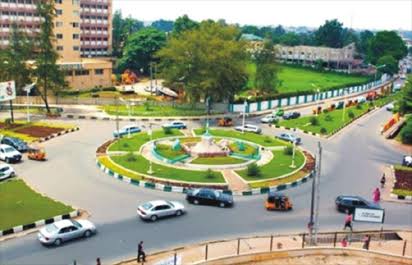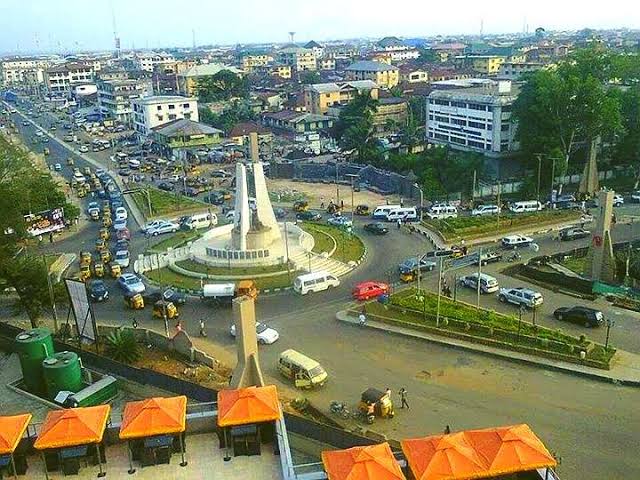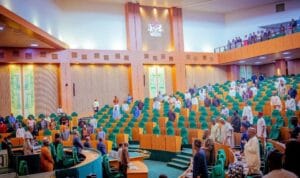In the first quarter of 2025, Imo State generated just ₦2.34 billion in Value Added Tax (VAT). That’s the second-lowest in the whole country—just slightly above Taraba State.
For a place with smart young people, fertile land, many hotels, and lots of business potential, this is quite surprising. So the big question is: What’s really holding Imo back?
Let’s take a closer look.
Why Is Imo State Struggling with VAT?
1. Insecurity
This is the biggest problem right now. Many parts of Imo—like Orlu, Owerri, and Okigwe—have seen violence, unrest, and attacks.
Because of this, businesses close early or don’t open at all. Investors don’t feel safe. And people are afraid to move freely or start new ventures.
When I tell people the dis advantages of sit at homes in South East. They tend not to understand. And when one prominent personal relocated his business, many started bad mouthing him, so you actually want him to endanger the lives of prominent personals that might come to his business premises?
You can’t grow an economy in fear.
No investors will invest in volatile area.
Anyways let’s continue
2. Bad Infrastructure
Let’s face it: the roads are bad. Electricity is inconsistent. Internet? Unreliable in many areas.
If you’re a business owner, how can you succeed in such an environment? If trucks can’t move easily, if shops can’t stay open due to power issues, how do you grow?
3. Over-Reliance on Government Jobs
Too many people in Imo rely on government jobs or monthly handouts. While government work is important, it’s not enough to build a strong economy.
Private businesses and entrepreneurship are what drive VAT and economic growth. Unfortunately, that’s not where the energy is right now.
4. Lack of Industrialisation
Compare Imo to states like Lagos or Rivers. Those places have big factories, shipping ports, oil companies, and tech hubs.
Imo? Not so much. There aren’t many large companies here that can generate high volumes of VAT through production and services.
5. Informal Economy
Most businesses in Imo operate informally, think of roadside sellers, market women, mechanics, barbers, and keke drivers.
You might think they don’t pay VATs, They pay but the system so corrupt that gøvernment might not be receiving a dime.
Even Owerri’s Hotel Boom Isn’t Helping Much
It’s true—Owerri is known for having lots of hotels, lounges, and bars. People visit for fun, relaxation, or events. So why isn’t this boosting VAT?
Here’s why:
1. Many Hotels Don’t Pay Tax
There’s no proper record of how many hotels, clubs, or lounges are operating officially. Many avoid paying VAT because no one’s tracking them.
Even if the government taxed each hotel ₦1,000 and every lounge or bar ₦300 yearly, that would generate serious money. But that’s not happening. Too many are flying under the radar.
2. Oil Companies Are Not Really “Here”
Imo produces oil, but the companies extracting it don’t have offices here. Their headquarters are in Lagos or Rivers. So even though the oil comes from Imo, the VAT goes to those other states.
Until those companies bring their admin offices or major operations to Imo, we won’t see much benefit from our own resources.
3. No Proper VAT System
Even when VAT is collected, is it recorded correctly? Are officials well-trained and equipped to manage this system? Probably not.
Without solid structures in place to collect, monitor, and remit VAT, money just leaks out or disappears.
So, What Can Ndi Imo Do?
Imo has potential—no doubt. But we need a clear plan to turn things around. Here are some things that can make a big difference:
1. Make Imo Safe Again
If people feel unsafe, they won’t invest. If businesses are constantly shutting down due to violence or fear, VAT generation will remain low.
Government must:
- Work with communities to improve local security
- Use technology and intelligence to track criminals
- Support peace-building initiatives
Safety is the first step.
2. Encourage Small Businesses and Investors
Startups, tech hubs, and small companies can grow Imo’s economy. But they need support.
- Give tax holidays or discounts to new businesses
- Offer land at low prices for agriculture or industry
- Help farmers, young entrepreneurs, and techies access loans and training
When more businesses thrive, more VAT flows in.
3. Fix Roads and Electricity
This cannot be ignored.
- Roads in Owerri, Orlu, Okigwe, and rural areas must be repaired
- Streetlights, solar power, and better internet should be expanded
- Build mini-industrial clusters with steady power
A good business climate starts with good infrastructure.
4. Bring Informal Traders Into the System
Many people are working hard and earning—but the system doesn’t see them.
We need to:
- Make business registration simple and affordable
- Digitize local markets so traders can pay tax with their phones
- Train local tax officers to educate, not just punish
Once the informal sector is formalized, VAT will increase.
5. Buy Made in Imo
Let’s support ourselves. From fashion to food, from furniture to movies—there’s a lot being created here.
With the right support, the creative and manufacturing industries can grow fast.
The government should:
- Run campaigns to promote local goods
- Support artisans with tools, space, and marketing
- Create export opportunities for Imo-made products
The more we produce and sell, the more VAT we generate.
6. Work with the Private Sector
The state alone cannot do everything. But through Public-Private Partnerships (PPP), a lot can be achieved.
- Partner with companies to build toll roads, markets, and digital platforms
- Involve local banks and investors in small business funding
- Offer incentives for businesses that invest in schools, clinics, and ICT hubs
Private capital can fast-track development.
7. Train Our Youth
Let’s move beyond certificates and focus on skills.
- Set up training centers for tech, design, crafts, and trades
- Encourage entrepreneurship from secondary school
- Support youth with funding and mentorship for startups
When young people start businesses, they create jobs—and taxes follow.
What the Government Must Do Differently
We can’t blame insecurity or the economy forever. Leadership matters.
The Imo State Government must:
- Be transparent with how VAT money is used
- Stop wasteful spending and focus on productive investments
- Hire competent professionals, not just political allies
- Run awareness programs to teach citizens why VAT is important
A strong, clear-headed leadership will rebuild trust and attract investors.
What Ndi Imo Can Also Do
It’s not just about the government. Every citizen has a role to play.
- If you own a business, register it
- If you earn, pay your taxes
- Support local businesses
- Report corruption or illegal practices
Change starts with you and me.
Final Thoughts: Imo Can Rise Again
Imo has it all—land, brains, culture, and hustle. But we’ve been sleeping on our own blessings.
Low VAT means our economy isn’t active. But it doesn’t have to stay that way.
With bold leadership, community effort, and smart planning, Imo can move from the bottom to the top.
Let’s stop pointing fingers. Let’s start building. It’s time to rise, Ndi Imo.
Thanks to OKOBI initiative is already on ground boosting the economy.
So while we are clamouring for economic change in Imo State we won’t fail to tell people of an ongoing business initiative that is community, family, group or team oriented.
🌾 What Is OKOBI?
OKOBI stands for One Kindred, One Business Initiative.
It’s a program started by the Imo State Government to help families (called kindreds) come together and start small businesses.
Instead of waiting for government jobs or handouts, OKOBI encourages people in the same extended family or village group to:
Pick a business idea (like farming, food processing, or tailoring)
Register it as a proper company
Work together to run it
Share profits as a group
The idea was introduced by Professor Kenneth Amaeshi, the Chief Economic Adviser to the Imo State Government
💡 How Is OKOBI Helping Imo State?
Here’s how the initiative is making a difference:
✅ 1. Creates Jobs
When kindreds start businesses, they create jobs for their own family members and others in their communities.
✅ 2. Encourages Teamwork
OKOBI brings people together. Families work as a team to grow something they all benefit from.
✅ 3. Supports Local Economy
These small businesses help grow the economy from the grassroots—selling goods, creating services, and doing trade within the state.
✅ 4. Brings Informal Businesses into the System
Many businesses in Imo are informal (unregistered). OKOBI helps them become formal. Once registered, they can pay taxes like VAT, get loans, and grow bigger.
✅ 5. Reduces Overdependence on Government
Instead of waiting for salary jobs, more people are becoming business owners through OKOBI. This reduces pressure on government jobs and helps people become financially independent.
✅ 6. Helps Government Generate Revenue
When more businesses are registered and making money, they can pay taxes. This helps the state get more money to build roads, schools, and hospitals.






